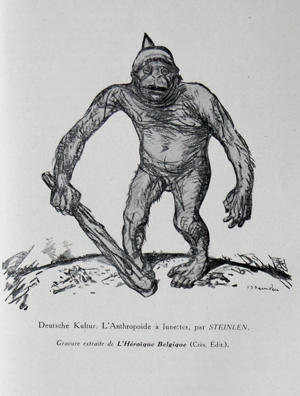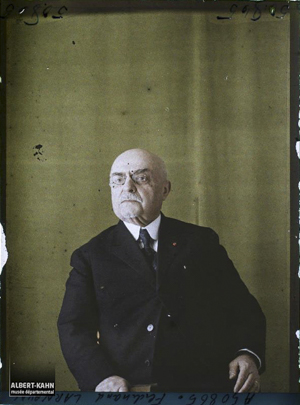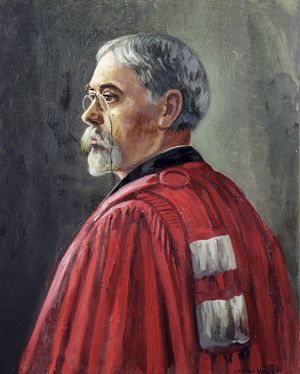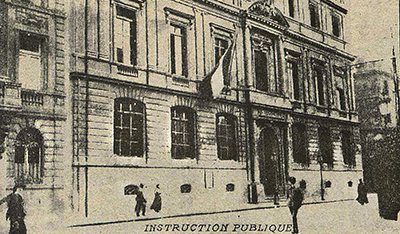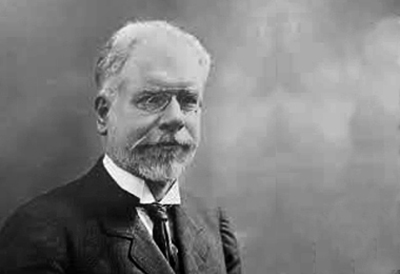15 June 202320 October 2023 Des facultés sur le front du droitA questioned neutrality “Those barbaric Germans” : the vision of some jurists This article aims to shed some light on the jurists who, during the First World War, relayed their hostility towards Germany articulated around the idea that the Germans were barbarians. Of course, this was not the case for all jurists, far from it. But among these professors, lawyers, magistrates, some moved away from a legal analysis to a moral anathema. Nor can it be claimed that it was a notion specific to jurists. On the contrary, one can find many writings of historians, philosophers and sociologists advancing the idea that the Germanic enemy was savage and cruel. But precisely, legal specialists were notpour lire la suite…
Category: A questioned neutrality
“Those barbaric Germans” : the vision of some jurists
This article aims to shed some light on the jurists who, during the First World War, relayed their hostility towards Germany articulated around the idea that the Germans were barbarians. Of course, this was not the case for all jurists, far from it. But among these professors, lawyers, magistrates, some moved away from a legal analysis to a moral anathema. Nor can it be claimed that it was a notion specific to jurists. On the contrary, one can find many writings of historians, philosophers and sociologists advancing the idea that the Germanic enemy was savage and cruel. But precisely, legal specialists were not really among the most committed intellectuals, who became involved in the conflict from the tip of their quill. And yet, jurists sometimespour lire la suite…
Dean Larnaude’s speeches
In its 1900 issue, the Revue internationale de l’enseignement [International Review of Education](IRE) transcribed a speech delivered by Dean Ernest Glasson (1899-1906 deanship) on the occasion of the presentation of the prizes of the Faculty of Law. The statement on the development of teaching in the Paris Faculty of Law in the nineteenth century concludes with the prospects of a hoped-for future for the institution : ” Que notre chère École continue sans interruption sa marche progressive, et que pendant ce vingtième siècle qui sera peut-être une époque de luttes formidables, elle reste, par la fermeté inébranlable de ses doctrines, un des représentants de la science les plus autorisés du Droit contre les abus de la force. Que la France remplisse sa mission en s’inspirant de l’esprit moderne, sanspour lire la suite…
Dean Maurice Hauriou’s speeches (1914-1919)
On Saturday, July 18, 1914, twenty days after the assassination of Archduke Franz Ferdinand, the academic year ended at the Toulouse Faculty of Law. In the middle of the afternoon, the faculty board was presided by Dean Maurice Hauriou (1856-1929). Over thirty minutes, they debated the candidacies for the vacant chair of Roman law as well as the distribution of the proceeds of the optional lectures. The faculty assembly then met to award the prizes of the end-of-year exams, the regulation of free courses and the Maurice Garrigou Foundation. Students and teachers were still able to enjoy a few peaceful days before being swept away by the turmoil of war. On Wednesday, November 25, 1914, the European conflict became a part of the debates of the organs of thepour lire la suite…
The perception of German science at the University of Bordeaux during the Great War
On December 8, 1870, Bordeaux, a provincial city far from the fighting between France and the German powers, welcomed the government delegation within its walls for two months. Its distance from the front was an asset, on top of its good relations with England, which allowed it to procure equipment necessary for the war effort. It was during this period that the faculty of law of Bordeaux – “completely forgotten” by the Napoleonic Imperial University – opened its premises again after almost a century of total emptiness, from 1792 to 1870, and this, despite the repeated request of the Bordeaux Bar to obtain its reopening. But it did not really assume its functions until mid-1871, long after the government had left. The war of 1870pour lire la suite…
Léon Duguit, German science and the Great War
Pierre Marie Nicolas Léon Duguit was born on February 4, 1859 in Libourne, Gironde. Brilliant studies, both in high school and university, allowed him to obtain the title of doctor at twenty-two years old. Thanks to an age exemption, he was granted tenure the following year. He taught the legal history in Caen, before returning to Bordeaux in November 1886. There, he met sociologist Émile Durkheim, who strongly influenced his legal thinking, tinging it with legal sociology. In parallel with his teaching, Duguit became involved in politics. He claimed to belong to the Léon Bourgeois’s “solidierist” current, represented in Bordeaux by Durkheim. According to Duguit, a jurist has a social role, that of “guide” towards the legislator, because of his discoveries of social laws. Inpour lire la suite…

